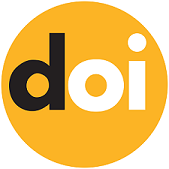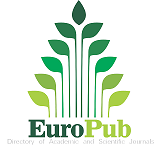Balancing Tradition and Modernity: Monetizing Zakātul Fiṭr And Its Contribution to Halal Industry Sustainability
DOI:
https://doi.org/10.58932/MULJ0003Keywords:
Halal market, Zakātul Fiṭr, modernity, flexibility, glamourAbstract
Islam exceeds the conventional conception of a program merely focused on spiritual growth and religiosity, rather it espouses an all-inclusive approach that incorporates both spiritual and material realms. Through the provision of ḥalāl wealth, Islam empowers its adherents with tools to harness the glamour of the universe. However, balancing between its traditional and modern approach remains an intricate question among some Muslim scholars, which Monetizing Zakātul Fiṭr (MZF) serves as its classic example. This paper, therefore, aims to study balancing the tradition and modernity of Islamic law through the phenomenon of monetizing Zakātul Fiṭr and its contribution to sustainability of Halal Industry which serves to ameliorate the lives of Muslims globally. The research methods adopted for this work are historical and analytical, for the purposes of studying the historical advent of Halal industry as well as analyzing the opinions of the scholars concerning the phenomenon. The paper reveals that monetizing Zakātul Fiṭr can contribute to sustainability of Halal industry by increasing financial inclusion for socioeconomically challenged individuals and families. The paper concludes that Islam offers a balanced and adaptable framework, integrating the principles of tradition and modernity as it provides Muslims with the flexibility to respond efficiently to changing circumstances. Via recommendation, this paper implores Halal market to expand its focus to incorporate other critical areas where Muslims face major deficits, notably Halal agriculture and livestock, Halal e-commerce, Halal blockchain certification among others across the expanse of Muslim world, including African countries.
References
Ab Rahman, (2012). The role of ZAKĀT in islamic banking institutions in developing the economy of the poor and needy in Malaysia. Tazkia Islamic Finance and Business Review, 7(2).
Abu Daud. (2009). Sunan Abi Daud. UK: Daru Rislatil Ilmiyyah.
Abū Zakariyyā’ Muḥyidīn Yaḥyā. (N.D). Al-Majmūc Sharḥul Muhadhab. Dārul Fikr.
Adh-Dhahabi, M. S. H. (1398 AH). At-Tafsir wal Mufassirun. Maktabatu Wahbah.
Ahmed, H. (2004). Role of zakah and awqaf in poverty alleviation. Islamic Development Bank, Islamic Research and
Training Institute, Jeddah.
Ahmed & Akbaba, (2020). Halal tourism: Definitional, conceptual and practical ambiguities. Journal of Tourism Research Institute, 1(2), 83–100.
Al-Qarḍawī, Y. (1999 AD). Al-Fiqhul Islami Baynal Asalah wat-Tajdid. Jeddah. Maktabatu Wahbah.
Aṭ-Ṭaḥāwī, M. (1399 AH). Sharḥu Macānil ‘Āthār. Beirut, Lebanon: Dar Al-Kotob Al-Ilmiyah.
Azzam, S., & Ahmad, K. (1976). Its Meaning and Message. Islamic Council of Europe.
Bahari, Z. B., & Yusuf, M. Y. (2015). Islamic corporate social responsibility in Islamic banking: Towards poverty alleviation. Ethics, Governance and Regulation in Islamic Finance, 73(5), 92–99.
Battour, M., & Ismail, M. N. (2016). Halal tourism: Concepts, practises, challenges and future. Tourism Management Perspectives, 19, 150–154.
Ergene & Armanios, F. (2018). Halal food: A history. Oxford University Press.
Hasan, N. (2009). The making of public Islam: piety, agency, and commodification on the landscape of the Indonesian public sphere. Contemporary Islam, 3(3), 229–250.
Ibn Kathir, I. U. (1999). Tafsirul Quranil Azim. Lahore: Daru Tayban.
Kasri, R. (2014). The Role of Zakāh in Poverty Alleviation: Evidence from Indonesia. Indonesia: Durham University.
Khemakhem, R., & Karoui, S. (2019). The Islamic Consumer and the Halal Market. International Journal of Islamic Marketing and Branding, 4(1), 45–58.
Kuznets, S. (1973). Modern economic growth: findings and reflections. The American Economic Review, 63(3), 247–258.
Mafaz, M. N. A., & Ahmad, Z. (2023). Harmony in Halal: Understanding Stakeholder Views Analyzing Products and Evaluating Policies in Malaysia. West Science Business and Management, 1(05), 495–508.
Mei Soon, J., Jamaludin, M. H., & Lau, N. (2016). Quality Assurance and Halal Control Points for the Food Industry. Nutrition & Food Science, 46(4), 557–570.
Pissarides, C. A., & Mortensen, D. T. (1994). Job Creation and Job Destruction in the Theory of Unemployment. The Review of Economic Studies, 61(3), 397–415.
Prayag, G., Razak, N. H. A., & Hall, C. M. (2019). Introduction to halal hospitality and Islamic tourism. In The Routledge handbook of Halal hospitality and Islamic tourism (pp. 1–18). Routledge.
Yahya, W. K., & Marzuki, S. Z. S. (2020). The Emergence Of Global Halal Business 2nd Edition. Selangor Darul Ehsan.
Downloads
Published
How to Cite
Issue
Section
License
Copyright (c) 2025 Journal of Halal Ethics and Research

This work is licensed under a Creative Commons Attribution-NonCommercial 4.0 International License.









